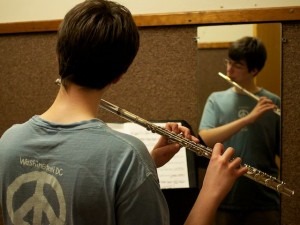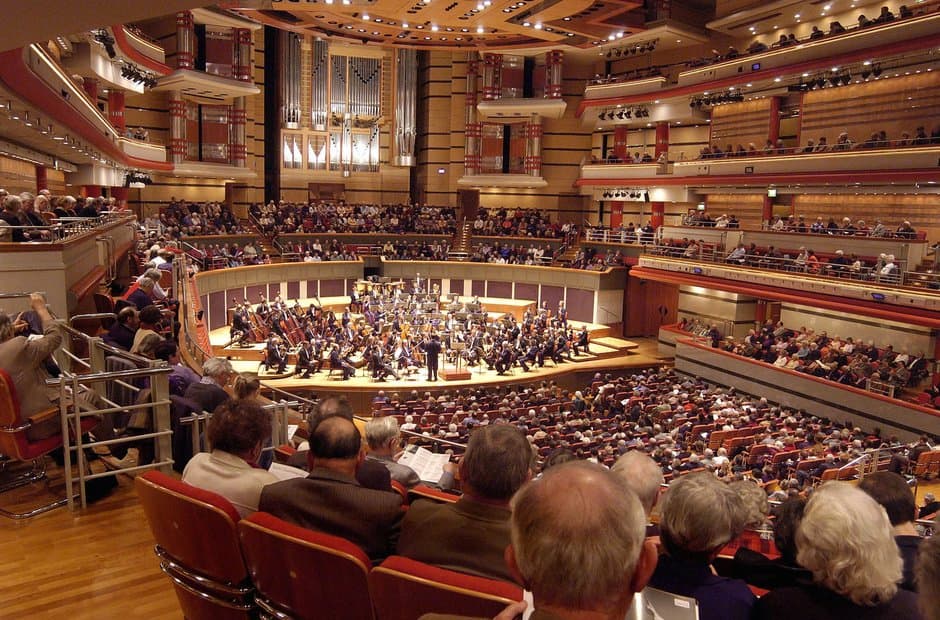
Credit: http://majoringinmusic.com/
Musicians have to practise. Repetitive, committed and quality practise trains the procedural memory (what musicians, and sportspeople, call “muscle memory”) and leads to a deeper knowledge and understanding of the motor and aural components of the music. Practising in this way leads to mastery and enables us to go deeply into our music so that we become intimate with its myriad details, large and small. Meanwhile, setting ourselves high standards is fundamental to our improvement and continued growth as musicians.
But perfectionism is a human construct, an ideal as opposed to a quantifiable reality, and as such it is an impossibility. No matter how hard you practise the fine motor skills involved in playing a musical instrument there is still no guarantee that you will never make a mistake. Go to a concert by the greatest virtuosos in the world and you will hear errors, if you listen carefully. As human beings we are all fallible, and despite our best efforts, we are subject to things outside our control, no matter how long we spend in the practise room.
Unfortunately, the desire for perfection is all-pervasive in contemporary society, and the need to achieve perfectionism is inculcated in us from a very young age. “Getting it right” and “being perfect” are drilled into children from the moment they enter the formal education system, where they are continually assessed and tested, where correct answers are rewarded with stickers and other symbols of approval and mistakes are regarded as “wrong”.
As musicians, if we carry the unrealistic ideal of perfectionism into our practise rooms we can easily grow frustrated with our playing if it is not note-perfect. This can lead to perpetual feelings of dissatisfaction, resentment and anxiety about practising and performing. It can place undue pressure on the musician, leading to issues with self-esteem, performance anxiety, and even chronic injury, such as RSI and tendonitis. And the striving for this unrealistic goal can destroy our love of the music we play and rob us of joy, expression, communication and freedom in our music making. In short, it can lead us to forget why we make music.
The “practise makes perfect“, and alongside it the “practise until you never make a mistake” mantras encourage unhealthy working habits which lead to mindless, mechanical practising, which in turn can cause us to overlook crucial details in the music. Perfectionism filters into the subconscious and creates a pervasive, hard-to-break personality style, with an unhealthily negative outlook. It prevents us from engaging in challenging experiences and reduces playfulness, creativity, innovation, spontaneity and the assimilation of knowledge – all pretty crucial activities for a musician. If you’re always focused on your own “perfect” performance, you can’t focus on learning a task. Because by making mistakes we learn.
A mistake can and should lead us to evaluate what we are doing: a misplaced chord or run of notes may indicate an awkward or incorrect fingering scheme – something which can be easily rectified. All errors and slips should be seen as opportunities for self-analysis and critique, resulting in self-correction, improvement and progress. Repetitive practising should be more sensibly reassigned the mantra “practise makes permanent” – and it is the permanence, an intimate in-depth knowledge of the music, that comes from intelligent practising which ensures that in performance we won’t be derailed by slips or errors, and that we can continue to perform “in the moment” with creativity, freedom and vibrant expression.
People frequently – and wrongly – equate perfection with excellence. While perfectionism is negative and damaging, excellence, on the other hand, is realistic, achievable and positive. Excellence involves enjoying what you are doing, feeling good about what you’ve learned and achieved, it develops confidence and responsiveness and offers continued inspiration. And by striving for excellence we can stay connected with our artistic muse, our desire to make music, and the overall meaning of that music.
Schumann: Etudes symphoniques (Symphonic Etudes), Op. 13
Alfred Cortot




